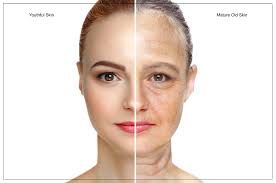
Vampire Facelifts Can Help Plump and Firm Your Skin—Here’s How They Work
In the ever-expanding world of aesthetic procedures, one innovative treatment that has garnered significant attention is the vampire facelift.
Rooted in cutting-edge science and natural biology, this procedure leverages your body’s own resources to rejuvenate and restore youthful appearance to the skin.
If you’ve been curious about what a vampire facelift involves, how it differs from other treatments with similar names, and whether it might be a good fit for your skincare goals, this comprehensive guide will walk you through everything you need to know.
What Is a Vampire Facelift?
At its core, a vampire facelift is a minimally invasive cosmetic treatment designed to improve the appearance of aging skin.
It combines two powerful components: platelet-rich plasma (PRP) injections derived from your own blood and dermal fillers to restore volume and smooth wrinkles.
PRP has gained popularity as a natural skin rejuvenator due to its high concentration of growth factors, which stimulate collagen and elastin production—two essential proteins responsible for skin’s firmness, elasticity, and youthful texture.
By injecting PRP back into your skin, the treatment promotes cellular repair and regeneration from within.
The dermal fillers, usually made of hyaluronic acid, provide immediate volume to areas that have lost fullness due to aging or other factors.
When combined, these two approaches help lift sagging skin, smooth fine lines and wrinkles, and improve skin texture and tone.
Vampire Facelift vs. Vampire Facial: What’s the Difference?
It’s important to distinguish the vampire facelift from the vampire facial, even though they share the term “vampire” and both use PRP.
Vampire Facial: This treatment uses microneedling—a process where tiny needles create micro-injuries on the skin’s surface to stimulate collagen production—and then applies PRP topically.
It is primarily designed to enhance skin texture, tone, and overall radiance.
Vampire Facelift: In contrast, this involves injecting PRP beneath the skin along with dermal fillers to restore volume and reduce deeper wrinkles and sagging.
The procedure focuses more on structural rejuvenation rather than just surface renewal.
Dr. Engelman, a leading dermatologist, clarifies: “Compared to the vampire facial, which uses microneedling, a vampire facelift injects dermal filler.”
How Does a Vampire Facelift Work?
The process begins with a simple blood draw from your arm, much like a routine blood test. This blood is then placed into a centrifuge, a machine that spins rapidly to separate its components.
The key part extracted is the platelet-rich plasma, which contains a much higher concentration of platelets than normal blood.
Platelets release growth factors essential for tissue healing and regeneration.
Next, the PRP is carefully injected into targeted areas of your face—usually where volume loss, wrinkles, or sagging skin are most noticeable.
Hyaluronic acid fillers are injected alongside the PRP to provide immediate lifting and contouring effects.
Over the following weeks, the PRP stimulates the production of new collagen and elastin fibers, which gradually improve skin elasticity, firmness, and overall texture.
The combination of filler and PRP offers both instant and long-term results, with effects typically lasting around one year. Maintenance treatments can be scheduled to prolong and enhance outcomes.
Benefits of a Vampire Facelift
1. Stimulates Natural Collagen Production
One of the most significant benefits of the vampire facelift is its ability to promote natural collagen synthesis.
Collagen gives skin its structure and strength, but production declines with age, leading to wrinkles, fine lines, and sagging.
PRP’s growth factors encourage fibroblasts in the skin to ramp up collagen and elastin production, helping skin regain firmness and resilience.
2. Restores Volume
The injection of hyaluronic acid fillers helps restore lost facial volume, especially in areas such as the cheeks, under-eye hollows, and nasolabial folds.
This gives the face a more youthful and lifted appearance immediately after treatment.
3. Reduces Fine Lines and Wrinkles
By combining fillers with the regenerative power of PRP, the vampire facelift smooths out wrinkles and fine lines around the eyes, mouth, and forehead, improving the skin’s overall smoothness.
4. Enhances Skin Texture and Tone
The PRP component not only boosts collagen but also promotes cellular turnover and healing, which can help improve skin texture, minimize pore size, and even out discoloration or dullness.
5. Minimally Invasive with Little Downtime
Unlike surgical facelifts, the vampire facelift is a non-surgical procedure that involves no incisions or general anesthesia.
Most patients experience little to no downtime, with only mild swelling or bruising that resolves within a few days.
Who Is a Good Candidate for a Vampire Facelift?
The vampire facelift is ideal for individuals who want to address mild to moderate signs of aging without undergoing surgery. Candidates typically:
Are experiencing early sagging or loss of facial volume
Have fine lines or wrinkles but not extreme skin laxity
Want a natural-looking rejuvenation that uses their body’s own healing mechanisms
Prefer a procedure with minimal recovery time
However, it is not suitable for everyone. For instance, those with severe skin sagging or significant excess skin may need a traditional surgical facelift for best results.
Additionally, the treatment is not recommended for:
Pregnant or breastfeeding individuals
People currently using medical-grade retinoids or other certain topical medications
Those with active skin infections or certain blood disorders
Your healthcare provider will conduct a thorough evaluation to determine if you are a good fit.
What to Expect During the Procedure
Step 1: Numbing
To ensure comfort, your provider will apply a topical numbing cream to your face before starting.
Step 2: Blood Draw and PRP Preparation
A small blood sample is drawn from your arm and spun in a centrifuge to isolate the platelet-rich plasma.
Step 3: Dermal Filler Injection
Hyaluronic acid fillers are injected into key facial areas to restore volume.
Step 4: PRP Injection
The PRP is then injected into the same or nearby areas to stimulate collagen and promote healing.
The entire procedure usually takes between 60 to 90 minutes.
Potential Side Effects and Risks
Most people tolerate vampire facelifts very well. Mild side effects can include:
Temporary swelling
Bruising
Redness
Slight tenderness at injection sites
These symptoms generally resolve within a few days without intervention.
Rarely, more serious complications such as infection or allergic reactions can occur, which is why selecting a licensed, experienced medical professional is crucial.
Dr. Park emphasizes the importance of proper clinic protocols:
“If the practice is busy and has multiple PRP patients at once, there is a chance that your PRP could get mistakenly switched out for another patient’s PRP,” highlighting the need for reputable providers.
Cost Considerations
The price of a vampire facelift varies widely depending on geographic location, provider expertise, the number of areas treated, and the types and amounts of filler used.
According to Dr. Tracy Evans, the cost can range from approximately $1,000 to $5,000 per session.
While this might seem costly, many patients appreciate that results can last up to a year, and the procedure avoids the risks and downtime associated with surgical facelifts.
Aftercare Tips for Optimal Results
Proper aftercare is essential to maximize the benefits and minimize complications. Experts recommend:
Avoid touching or rubbing the treated area to reduce infection risk.
Maintain good hand hygiene before applying any skincare products.
Use a gentle moisturizer regularly to support skin healing and hydration.
Protect your skin from sun exposure by wearing a broad-spectrum SPF, especially in the days immediately following treatment.
Avoid strenuous exercise, saunas, and hot tubs for at least 24-48 hours to reduce swelling.
Following your provider’s specific instructions will help ensure the best possible outcome.
Final Thoughts: Is a Vampire Facelift Right for You?
If you’re seeking a non-surgical option to address wrinkles, fine lines, sagging skin, and volume loss, the vampire facelift offers an exciting blend of science and nature.
By harnessing the regenerative power of your own blood and the volumizing effects of hyaluronic acid fillers, this treatment can provide subtle, natural-looking results with minimal downtime.
However, like any medical or cosmetic procedure, it’s essential to do your research and consult with a board-certified dermatologist or plastic surgeon.
This ensures that your treatment plan is tailored to your individual needs and safely performed with high-quality materials and techniques.
With the right candidate, the vampire facelift can be a transformative step towards rejuvenated, plumper, and firmer skin.


